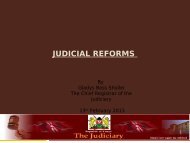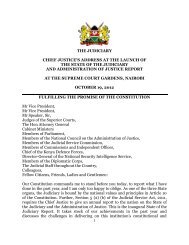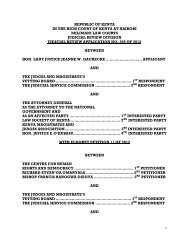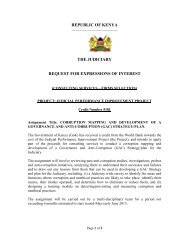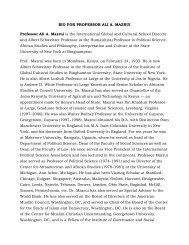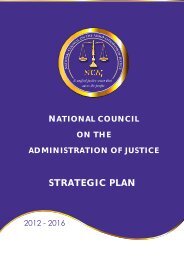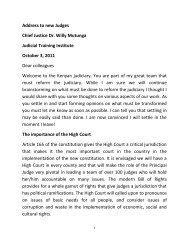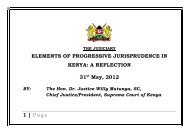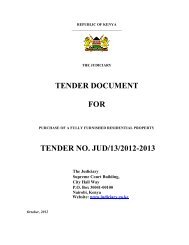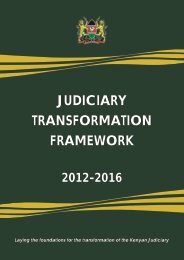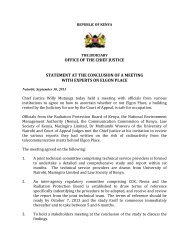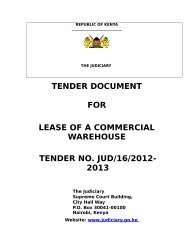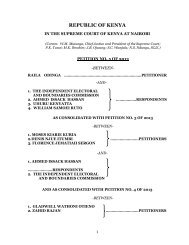REPUBLIC OF KENYA - The Judiciary
REPUBLIC OF KENYA - The Judiciary
REPUBLIC OF KENYA - The Judiciary
You also want an ePaper? Increase the reach of your titles
YUMPU automatically turns print PDFs into web optimized ePapers that Google loves.
United States. He held that there was a competent legal system in India<br />
that could arbitrate upon the dispute arising from a gas leak in<br />
Bhopal, India leading to the deaths of thousands. He held that the U.S.<br />
Court was an inappropriate forum because the material facts and all<br />
parties involved were substantially situated in India. On appeal, the<br />
U.S. Second Circuit of the Court of Appeal upheld the decision by<br />
Justice Keenan (Union of India v. Union Carbide 809 F.2d 195). <strong>The</strong><br />
said affidavit is also reproduced in the book entitled Courtroom<br />
Genius by Soli J Sorabjee and Arvind P Datar, (LexisNexis Butterworths<br />
Wadhwa, Nagpur 2012).<br />
[109] Mr. Palkhivala’s quote, however, has to be put in the context of<br />
the relevant provisions of the Indian Constitution. <strong>The</strong>se are Articles<br />
32 and 136 (1) of the Indian Constitution, reproduced below:<br />
“PART III<br />
FUNDAMENTAL RIGHTS<br />
Right to Constitutional Remedies<br />
32. Remedies for enforcement of rights conferred by this<br />
Part –<br />
(1) <strong>The</strong> right to move the Supreme Court by appropriate<br />
proceedings for the enforcement of the rights conferred by<br />
this Part is guaranteed.<br />
(2) <strong>The</strong> Supreme Court shall have power to issue directions<br />
or orders or writs, including writs in the nature of habeas<br />
corpus, mandamus, prohibition, quo warranto and certiorari,<br />
whichever may be appropriate, for the enforcement of<br />
any of the rights conferred under this Part.<br />
62



